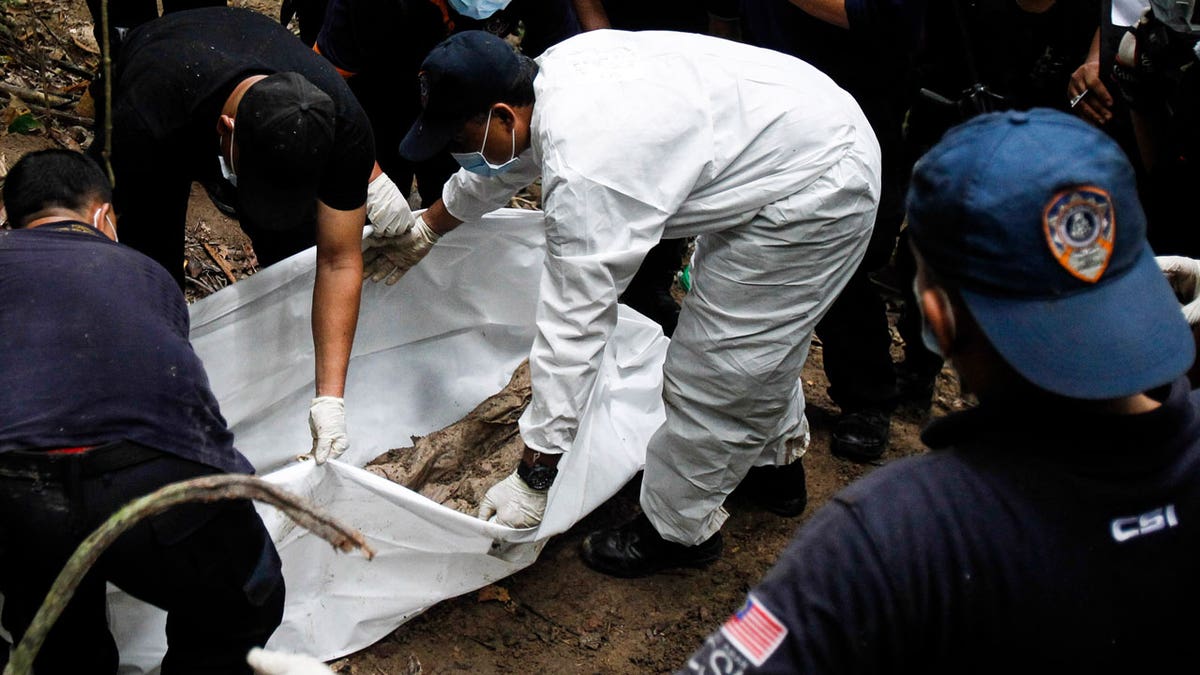Four Thai nationals are now facing charges under Malaysian anti-trafficking laws, stemming from the grim 2015 discovery of mass graves near the Malaysia-Thailand border. These graves are believed to hold the remains of Rohingya Muslims and Bangladeshis who were victims of human trafficking.
Malaysian Home Minister Saifuddin Nasution announced that these four individuals were part of a larger group of ten Thai citizens sought for extradition since 2017. Their apprehension and extradition on Thursday follows extensive cooperation between Malaysian and Thai authorities. The charges relate to the horrific events at Wang Kelian in northern Perlis state, a tragedy that shook the nation.
Back in May 2015, the discovery of abandoned jungle camps used by human traffickers in Wang Kelian sent shockwaves through the region. Malaysian police exhumed 139 bodies from mass graves at the site. This followed a similar discovery by Thai police just weeks earlier, who unearthed 36 bodies from shallow graves on their side of the border.
These discoveries exposed the brutal reality of human trafficking networks operating in the region. These networks held vulnerable people captive in jungle camps while extorting ransoms from their families. The victims were primarily members of Myanmar's persecuted Rohingya minority and impoverished Bangladeshi migrants seeking better lives.
The four accused were brought before a lower court in Perlis under heavy security. They face charges of human trafficking, a crime that carries a potential sentence of up to 15 years in prison. Media reports indicate that no pleas were entered, bail was denied, and their case will be elevated to the high court.

Malaysian police forensic team members excavate an unmarked grave in Wang Burma at the Malaysia-Thailand border outside Wang Kelian, Malaysia, on May 26, 2015. (AP Photo/Joshua Paul, File)
This is not the first time individuals have been charged in connection with the Wang Kelian camps. Malaysia has previously charged five other foreigners with trafficking-related offenses, while Thailand has convicted 62 people, including nine officials. A 2019 joint report by the Human Rights Commission of Malaysia and Fortify Rights highlighted potential investigative gaps and possible obstruction of justice. The report noted that Malaysian authorities were aware of the camps' existence prior to the May discovery, having raided one site months earlier where trafficking victims were caged. The delay in exhuming the bodies hindered forensic investigations into the cause of death. A subsequent Royal Commission of Inquiry, while clearing Malaysian officials and citizens of direct involvement in the trafficking syndicates, identified negligence by border patrols and failures to adhere to standard operating procedures, impacting the investigation's effectiveness.
Comments(0)
Top Comments